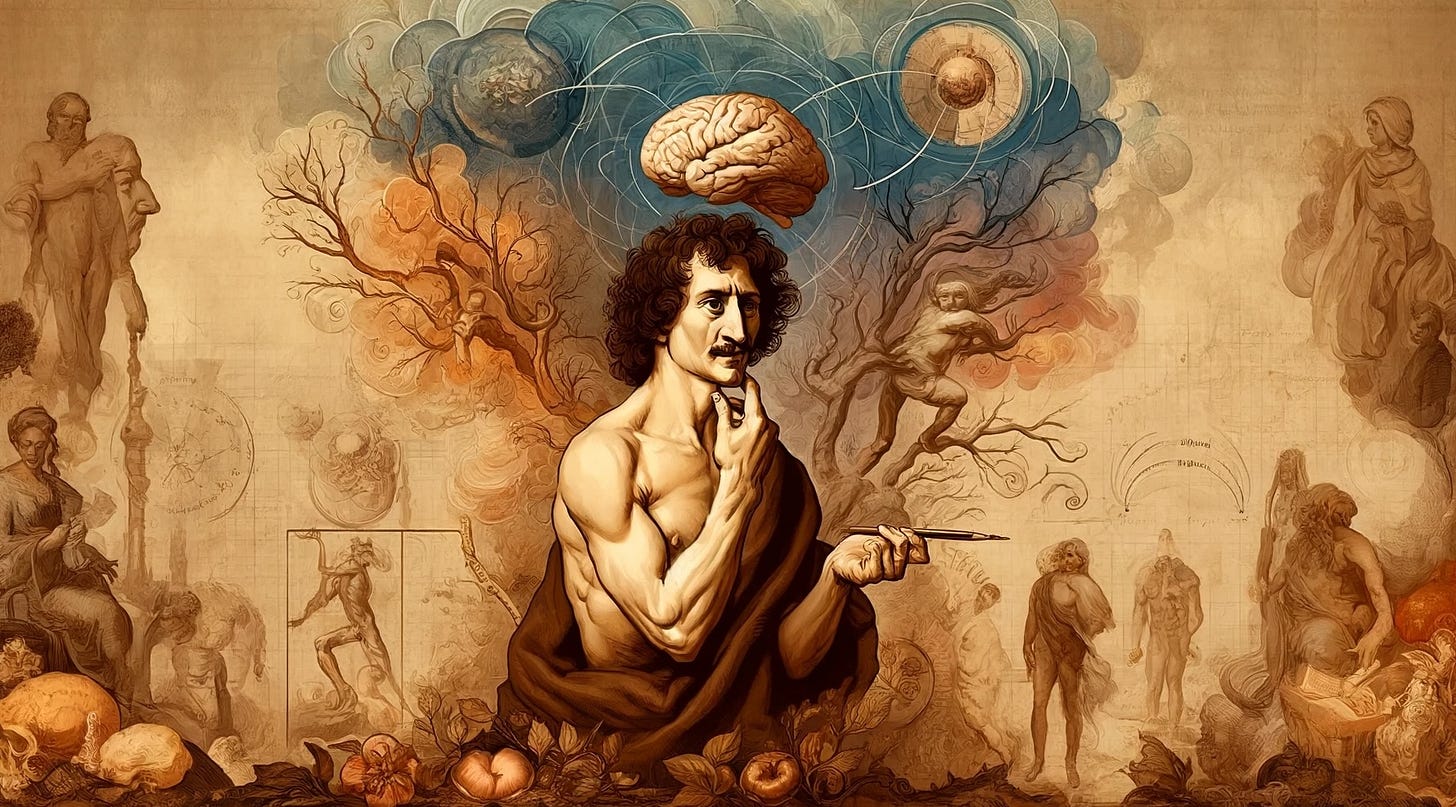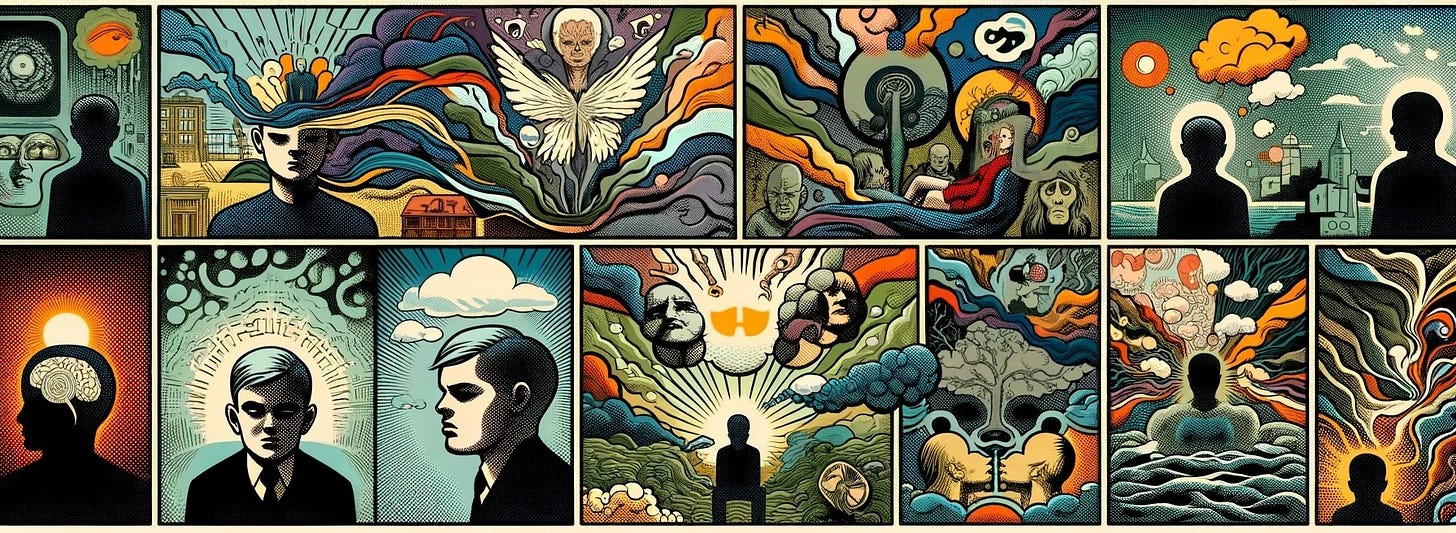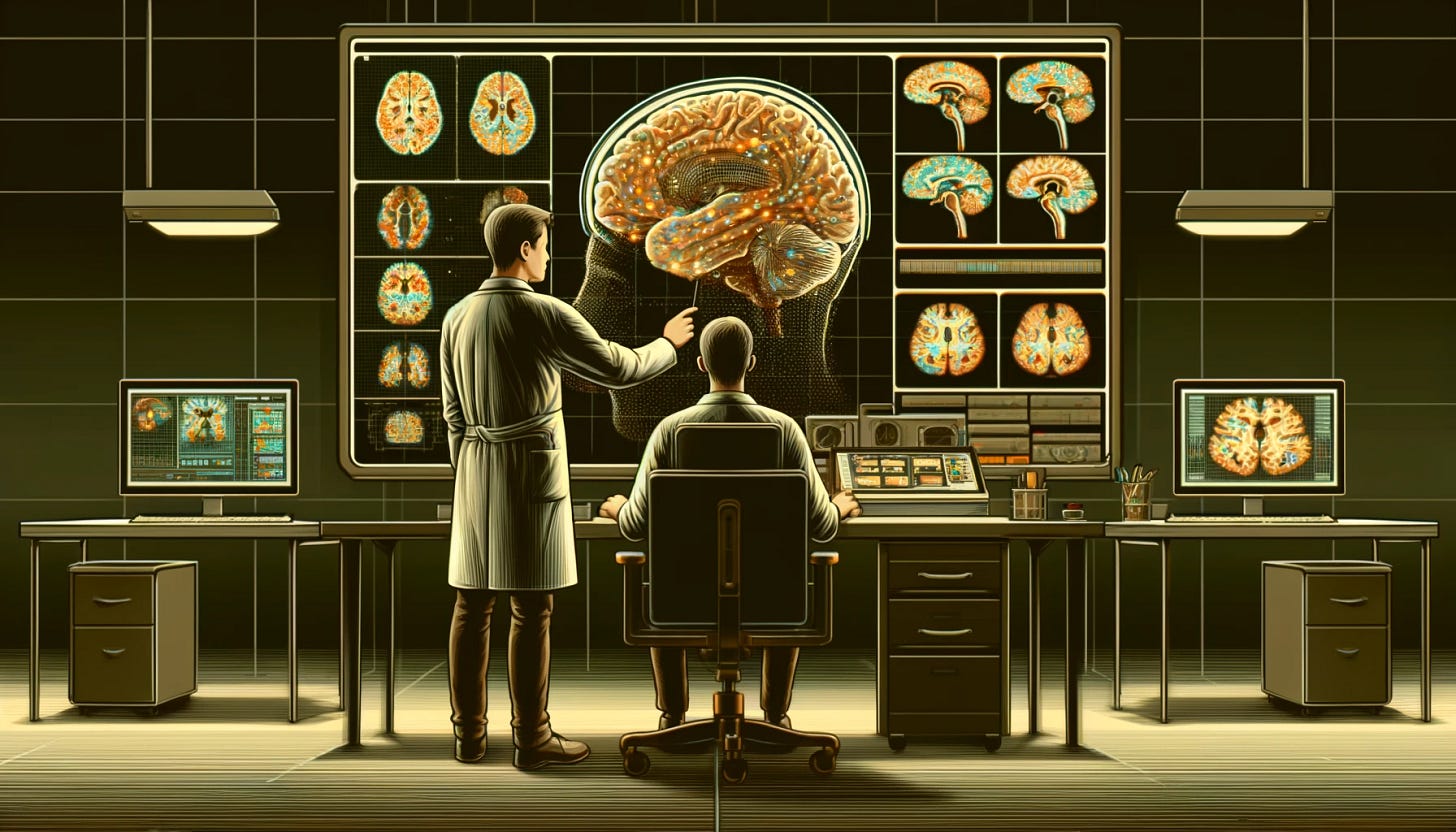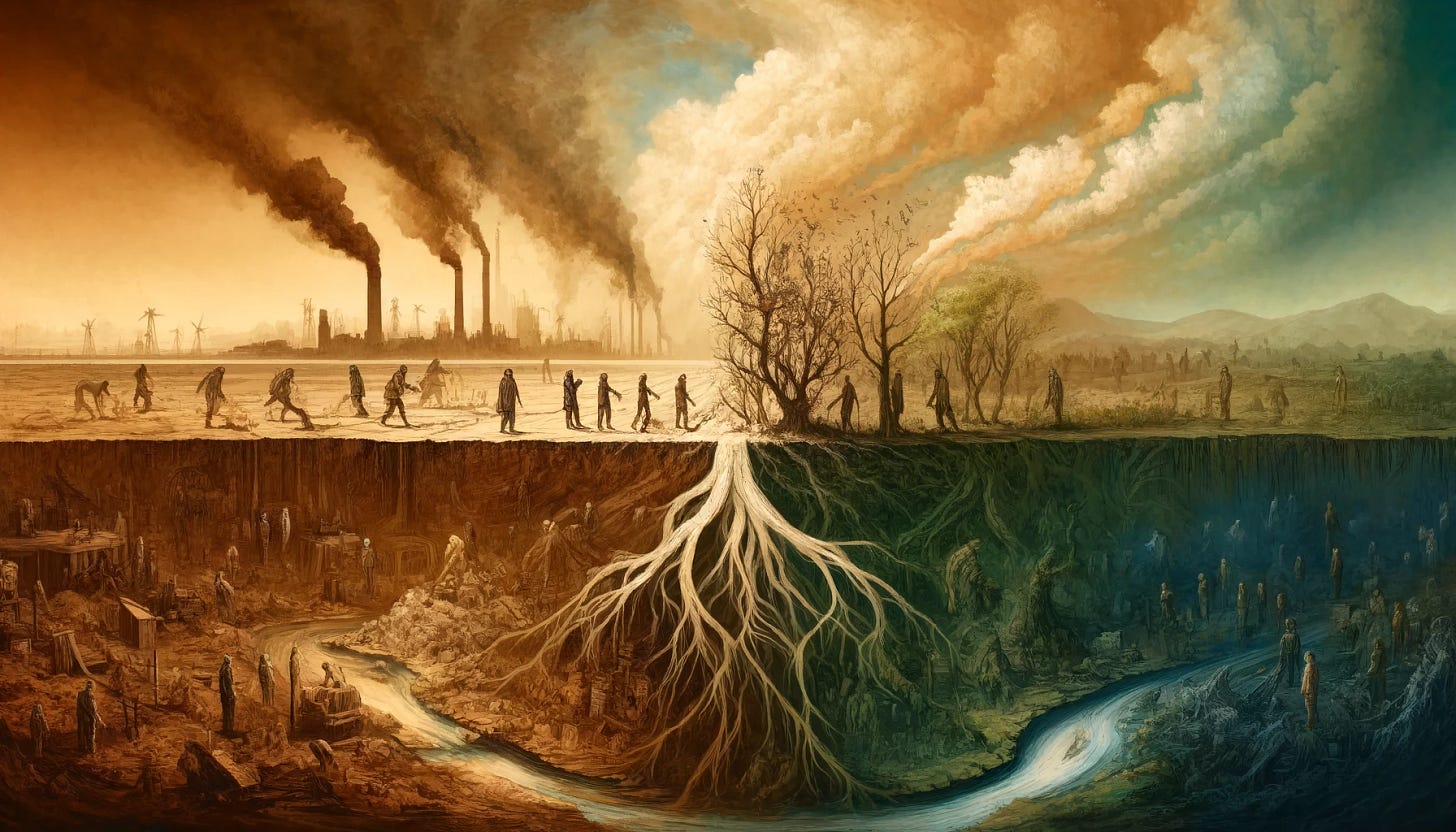How Our Feelings Shape Our World
And why understanding your own emotions is the path to understanding others
TL;DR: Emotions are super critical to our wellbeing. Emotion influences our perception of the world, dictates our behaviours, helps foster and/or destroy relationships, assists us in discovering our inner selves. Learn to be aware of your own emotions + Learn to understand your triggers + Learn to regulate negative emotions well = a good life.
Emotions are at the core of everything we do, even if it doesn’t always seem that way. It’s easy to think of our feelings as just reactions — something that happens to us when things go right or wrong. But emotions are much more; they’re the drivers behind our decisions, the glue in our relationships, and the unseen force that shapes our daily lives. When you choose a job because it ‘feels right’, staying up worrying about a friend, or find yourself moved by a piece of music, that’s emotion at work.
But it’s not just about individual experiences. Emotions drive societies and cultures, shaping our laws, our arts and our moral judgements. They’re behind the push for justice, and the resistance against oppression, fuelling movements that change the course of history. On a more day-to-day level, emotions determine the quality of our relationships, from the bonds we share with family and friends to our interactions with strangers. They’re why we can empathise with others, offering a shoulder to cry on, or sharing in their joy and success.
So, when you ask what emotion has to do with anything, the answer is: everything. Without emotion, our choices would be cold and mechanical, our relationships shallow, and our lives stripped of meaning and colour. Emotions add depth to our existence, turning a simple ‘anything’ into something profoundly human. They’re not just a part of life; in many ways, they are life.
For those who are already familiar with ancient philosophy and psychology of emotions, you can skip this part entirely.
Different Perspectives Through Time
For thousand of years, people from every corner of the world have poured endless effort into understanding emotions. It’s a quest that spanned many disciplines — philosophy, psychology, neuroscience, anthropology — reflecting a vast investment of intellectual curiosity, research, and introspection humans have carried out to get to the bottom of why we feel the way we do. Ancient philosophers debated it, medieval poets wrote about it, and today’s scientists run countless experiments trying to map it out in our brains.
There’s a deep need to make sense of our feelings — to figure out why love can turn to sorrow, why fear can spur courage, and how joy can be so fleeting.
Every book written, every study conducted, and every conversation had about emotions is part of this ongoing effort to understand not just ourselves, but each other, bringing us closer to the heart of what it means to be human.
Ancient Greece — (800 BCE - 600 CE)

Emotions (pathos) were seen as both natural and necessary but needed to be balanced by reason (logos). Emotions were integral to moral and ethical life, with philosophers like Plato and Aristotle discussing their importance in ethical decision-making and personal growth. Plato argued for the supremacy of rational knowledge over the passions, suggesting that true wisdom involves mastering one's emotions through the pursuit of virtue and philosophical understanding.
“When we see men of a contrary character, we should turn inwards and examine ourselves.”
— Confucius highlighted the importance of self-reflection in managing one’s emotions and actions.
Middle Ages (5th - 15th century)
Emotions were discussed within religious contexts, viewed as temptations or tests of faith that needed to be controlled for spiritual purity. Emotions (or passions) were seen as challenges to the human will, requiring moderation through faith and reason. Thomas Aquinas integrated Aristotelian philosophy with Christian theology, arguing that emotions could be morally good if directed by reason towards virtuous actions.
“Moderation of anger is an effect of meekness, which is a virtue.”
— Thomas Aquinas views emotions, such as anger, not as inherently bad but as natural human responses that need to be regulated by virtue to ensure they are expressed in morally appropriate ways
The Enlightenment (17th - 18th century)
Emotions began to be seen as natural phenomena that could be systematically studied. The era emphasised reason and scientific methods, viewing emotions with suspicion as sources of irrationality. Emotions were often opposed to reason, considered obstacles to clear thinking and enlightenment. René Descartes' theory of the passions of the soul, where he distinguished between bodily-induced passions and those originating from the soul.
“It is by the sovereign and master part of the soul that one must control the passions”
— René Descartes suggests that through the use of our reason, we can and should manage our emotional responses to ensure they are appropriate and constructive, rather than being ruled by them in a way that might lead to irrational and harmful outcomes.
The Romantic Period (late 18th - mid-19th century)
Emotions were celebrated as sources of truth, authenticity, and individual expression, marking a “move away” from the rationalism of the Enlightenment. Emotions were revered and seen as central to artistic expression and personal identity. The emphasis on subjective experience and emotion in art and literature, with figures like William Wordsworth and Johann Wolfgang von Goethe championing emotion’s role in creativity.
“Feelings are not supposed to be logical. Dangerous is the man who has rationalised his emotions.”
“Until you discover what the tender passion is, you have not lived; but once you have known it, you will never be able to live without it.”
— Johann Wolfgang von Goethe emphasises that emotions operate on a different plane than reason, serving unique functions that rational thought cannot fulfill. He also argues that imposing rationality onto our emotional lives can be problematic, and one risks becoming detached from the genuine, raw experience of those emotions.
Modern Psychology (late 19th - 20th century)
Emotions were analysed as psychological and physiological phenomena, leading to their study within the emerging field of psychology. Emotions were considered both biological responses and products of human cognition and social interaction. Carl Jung’s work on the psyche (totality of the human mind, conscious and unconscious) described the personal unconscious as consisting of all forgotten and suppressed experiences of an individual — including complexes, which are emotional themes and memories that have been pushed out of consciousness due to their distressing nature.
“What you resist, persists.”
— Carl Jung suggests that denying or suppressing emotions only serves to strengthen them and keep them in the unconscious, where they can continue to influence behaviours and well-being in unseen ways.
Present Day
Emotions have a clear biological basis, with specific brain regions — such as the amygdala for fear, the orbitofrontal cortex for decision-making and the insula for empathy and emotional awareness. Advances in neuroimaging technologies have allowed scientists to observe the brain action as it experiences emotions. Additionally, neurotransmitters like dopamine, serotonin, and oxytocin play significant roles in how we experience pleasure, mood regulation, and social bonding, respectively. (Read: “Dopamine Nation: Finding Balance in the Age of Indulgence” — what to do when we’ve all become vulnerable to compulsive overconsumption)
Emotions are seen as integral to cognition, affecting perception, decision-making, and memory. Emotional intelligence emerged as a key factor in personal and professional success. Peter Salovey and John D. Mayer, developed the concept of emotional Intelligence which was later popularised by Daniel Goleman.
The expression and interpretation of emotions are heavily influenced by cultural norms and social contexts, which dictates acceptable ways of expressing feelings and the meaning attributed to different emotional states. Martha Nussbaum, a contemporary American philosopher, argues that emotions are not just irrational impulses but have their own form of intelligence and wisdom. Emotions are complex judgements about things we value and care about, deeply interconnected with our perceptions, thoughts, and social norms.
So, What Exactly Is The Problem Right Now?
A few weeks back, I touched on the concept of the metacrisis to shed light on how various contemporary global issues — such as environmental decline, societal division, political divides, and a pervasive sense of existential emptiness — are deeply intertwined with our emotional lives. These wide-range issues surprisingly influence our ability to feel, articulate, and regulate emotions. (Watch: Daniel Schmachtenberger talks about the link between the ‘meaning crisis’ and the metacrisis)
Globally, we’ve witnessed increased rates of depression, anxiety, and suicide. According to the World Health Organisation, depression is one of the leading causes of disability worldwide, affecting more than 280 million people. Suicide rates have increased by 60% over the last 45 years. Studies have also highlighted a “loneliness epidemic” in several countries, showing links to various health risks, including mortality rates. (Read: A different perspective from Business Insider’s “There is no loneliness epidemic” arguing that not all loneliness is bad and that it’s chronic loneliness that is harmful)
Mass shootings are also tragic examples of extreme emotional dysregulation and societal disconnection, beyond the accessibility of weapons. The Utoya Island attack in Norway in 2011, stands as one of the most shocking and devastating acts of violence in recent history because it targeted young people. A Norwegian right-wing extremist detonated a bomb in Oslo, before travelling to the island and embarked on a shooting spree at a youth camp killing 69 people. Breivik’s manifesto and subsequent trail testimonies revealed a person deeply engrossed in far-right ideologies. He described his attack as “cruel but necessary act to save Norway and Europe from multiculturalism” — displaying an emotional state characterised by anger, fear and hatred.
The Pulse nightclub shooting in 2016, in Orlando, Florida was not only one of the deadliest mass shootings in U.S. history at the time, but also a profound act of violence against the LGBTQ+ community. Omar Mateen attacked the nightclub killing 49 people and injuring 53 people. Reports from those who knew him and from his own social media history depicted a man with homophobic tendencies, despite the target of his attack, and someone who struggled with his identity — influenced by a mix of personal vendettas, internalised conflict, and exposure to extremist ideologies.
My earlier post, “Why Are We So Bad At Getting the One Thing We All Want?” touched on societal’s silent struggle for authentic relationships and why the odds are stacked against us in this supposedly ‘more’ connected world.
The seriousness of emotional dysregulation cannot be overstated. It impacts society, familial relationships, and personal relationships in ways that intertwined with public health, economic stability and the fabric of our community life — decreasing the overall quality of life for the human civilisation.
When Inner Peace Leads to World Peace
Our path to a peaceful world doesn’t start on the front lines of global disputes or heated arguments — instead, it begins quietly within ourselves.
The Healthy Path
Awareness — becoming aware of our emotions involves recognising and acknowledging them as they arise, especially during stressful times. This step is crucial as it helps us pause and consider our reactions, which can prevent conflicts and lead to more peaceful interactions.
Understanding — this means asking ourselves why we feel a certain way and identifying what triggers these feelings. This step is crucial because emotions are often signals that something important is happening in our lives — whether it’s a challenge to our values, a reaction to a relationship dynamic, or a response to internal or external stressors. (Read: 3 ways to better understand your emotions)
Regulating — this involves managing how we express them in a way that maintains respect and understanding. It’s about responding rather than reacting. It involves more than just controlling our impulses; it's about understanding the appropriate ways and times to express our feelings in order to foster positive outcomes. (Read: 3 examples of cognitive reframing)
Transcendence — this is about overcoming that hold that negative emotions have on us. It involves integrating these emotions in a healthy way that promotes inner peace and emotional stability. When you are not easily swayed by emotions, you’ll be able to maintain a calmer, more consistent state of mind — and therefore, be in a better position to choose our reactions consciously. (Read: Dalai Lama suggests that we can literally train ourselves for transcendence)
The Not-So Healthy Path
Not Understand — when we don’t recognise or acknowledge our emotions, these feelings can remain confusing and overwhelming which makes it difficult to respond to situations appropriately. This misunderstanding can lead to inappropriate reactions and poor decision-making, which may exacerbate the situation causing more stress and conflict. (Read: Reasons why you may not know what you’re feeling)
Unprocessed Emotions — these accumulate and manifest as chronic stress or anxiety, and we pay dearly for our failure to process our feelings. Unprocessed emotions often linger beneath the surface, influencing behaviour and perception in subtle yet profound ways. Over time, this can lead to emotional numbness or sudden, unexplained emotional outbursts, as we have not developed a method for healthily dealing with these emotional build-ups. (Read: Dealing with repressed emotions)
Low Understanding of Self — from a continued lack of understanding and processing, if we do not grasp why we feel a certain way, or what these feelings signify, then it becomes challenging to form a coherent sense of self. This confusion can lead to issues such as low self-esteem and identity confusion, where we can feel uncertain about who we ‘really’ are and our place in the world. This uncertainty can prevent us from engaging in self-improvement or making decisions that align with our true interests and values. (Read: Ways to build self-esteem)
Feeling of Disconnection from the World and Others — Emotional isolation occurs when we feel that others cannot understand us or our feelings. This disconnection can make us avoid social interactions or sharing our feelings, leading to social withdrawal. Furthermore, our lack of emotional resonance with others can make forming or maintaining relationships difficult, compounding to the feelings of loneliness and isolation. (Watch: School of Life’s take on why despairing moods are caused by failures of the imagination)
Prone to Depression, Emotional Outbursts, or Narcissistic Tendencies — ultimately, the failure to effectively manage emotions can render us more susceptible to mental health issues such as depression. The pent-up, unprocessed emotions can lead to mood swings and emotional outbursts, where minor provocations trigger disproportionately intense emotional reactions. An impaired understanding of self and others can foster narcissistic tendencies. We may become overly focused on our needs and overlook other’s feelings which can further create tension within our personal relationships. (Read: my previous post titled “Narcissism — The Main Cause of Evil in the World”)
To wrap up, let us consider this: it’s clear that the way we manage our feelings has profound implications — not just for us personally, but for society at large. By better understanding and regulating our feelings, we make room for more empathetic interactions and stronger bonds that benefit everyone.
When we share our experiences, joys and struggles with others, we receive validation and empathy that reinforce our sense of belonging and self-worth. I wrote about my own reconnection experience with a long-lost friend who helped validated so much of what Neeti and I went through in the past years. We felt less alone in what we were going through, and that somehow gave us the needed strength.
Emotions are tools that help us forge a more understanding and supportive society, and the simple act of connecting with another person can be a powerful remedy, grounding us in a shared human experience that nourishes the soul and heals the mind.
My Favourite Finds This Week
Byung-Chul Han — a Korean-German philosopher (author of “The Burnout Society”) explores contemporary society’s challenges in-depth and discusses how neoliberalism, technology, and media influences our perceptions and emotional states. Philosophize This! did an episode on him covering topics such as ‘digital panopticon’ (pan=all; optic=seeing), narcissism, and how fragmented information prevents us from deep contemplation.
The Antisocial Network: Memes to Mayhem — this Netflix gem surprised me hugely as I did not realise the direct connection between 4chan (an imageboard website) and Anonymous (the infamous hackers group). It’s a documentary about two entities that represented critical aspects of the early 21st-century digital culture that have struck the ongoing debates about internet governance, privacy, and the ethics of digital activism.
Postcard from Hua Hin, Prachuap Khiri Khan, Thailand
This is Tesla, my 11-year old contemplative dachshund x border terrier, who always embodies a zen-like demeanour. She has a keen sense for observation, often found soaking in her surroundings with a gentle and thoughtful gaze. Each time I observe her reactions to the world around her, it never fails to bring a smile to my face. Tesla’s calm presence and appreciation for the simple pleasures in life serves as a delightful reminder to savour the present moment.
“We derive immeasurable good, uncounted pleasures, enormous security, and many critical lessons about life by owning dogs.” — Roger Caras
Learn Gratitude: “Let us rise up and be thankful, for if we didn’t learn a lot today, at least we learned a little, and if we didn’t learn a little, at least we didn’t get sick, and if we got sick, at least we didn’t die; so, let us all be thankful.”




















*we pay dearly for our failure to process our feelings* -> right on. When I don't take time off for processing, I feel the accumulated strain it puts on my psyche. Things like journaling, meditation, sport help a lot, but we need to first give ourselves the permission to do them without worrying about everything else. Congratulations on another great post!